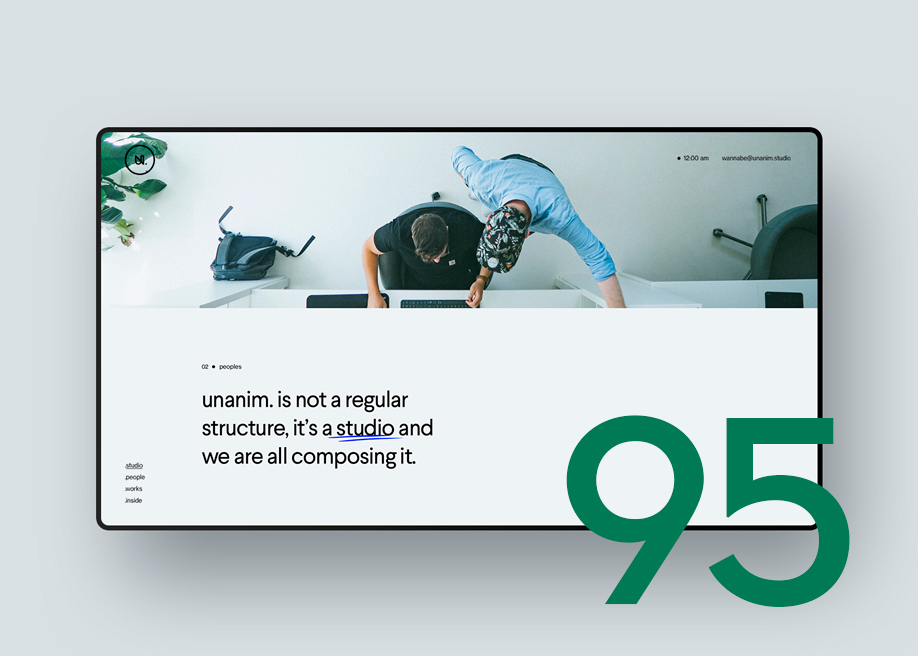All Categories
Featured
Table of Contents
- – Webdesign Designs, Themes, Templates And ... -...
- – Learn Responsive Design - Web.dev Tips and Tr...
- – Web Design Services By Freelance Website Desi...
- – What Is Web Design? A Comprehensive Guide - W...
- – Responsive Web Design Certification - Freecod...
- – Learn Responsive Design - Web.dev Tips and Tr...
- – Web Design Blog - Webdesigner Depot Webdesig...
- – Web Design - Linkedin Learning, Formerly Lyn...
- – Law Firm Website Design, Attorney Web Design...
- – Web Design Definition - Techterms Tips and ...
- – Top 30 Web Design Companies - Apr 2022 - De...
- – What Can I Do With A Web Design And Develop...
- – The Top 10 Most Important Elements Of A Web...
Webdesign Designs, Themes, Templates And ... - Dribbble Tips and Tricks:
Desktop apps need designers to create their style and send it to an advancement group who can then transform the style to code. Typically, this is the requirement for large and/or complex websites due to the fact that it enables the designer to focus on the overall appearance and feel, while all the technical challenges are moved to the advancement group
Learn Responsive Design - Web.dev Tips and Tricks:

Fantastic designs can communicate a lot of details in just a couple of seconds. This is made possible with the usage of effective images and icons. A fast Google search for stock images and icons will create thousands of alternatives.
Web Design Services By Freelance Website Designers - Fiverr Tips and Tricks:
Your site visitors have numerous ways of connecting with your site depending on their gadget (scrolling, clicking, typing, and so on). The best website styles streamline these interactions to offer the user the sense that they are in control.
What Is Web Design? A Comprehensive Guide - Wix.com Tips and Tricks:
Your users need to have the ability to easily browse through your website without encountering any structural concerns. If users are getting lost while trying to browse through your website, possibilities are "spiders" are too. A spider (or bot) is an automatic program that explores your site and can identify its functionality.
Responsive Web Design Certification - Freecodecamp.org Tips and Tricks:
Responsive, Understanding the pros and cons of adaptive and responsive websites will help you figure out which website home builder will work best for your site style requirements. You might discover articles online that speak about a whole lot of various website design styles (fixed, static, fluid, and so on). In today's mobile-centric world, there are just two site styles to use to appropriately create a website: adaptive and responsive.
Learn Responsive Design - Web.dev Tips and Tricks:

a header) is 25% of its container, that element will remain at 25% no matter the change in screen size. Responsive sites can also use breakpoints to create a custom appearance at every screen size, but unlike adaptive sites that adjust just when they hit a breakpoint, responsive sites are constantly changing according to the screen size.(image credit: UX Alpaca)Fantastic experience at every screen size, regardless of the gadget type, Responsive website builders are typically rigid which makes the style difficult to "break"Tons of available design templates to begin from, Requires substantial design and screening to ensure quality (when starting from scratch)Without accessing the code, custom-made styles can be difficult, It is essential to keep in mind that site home builders can include both adaptive and responsive features.
Web Design Blog - Webdesigner Depot Webdesigner Depot Tips and Tricks:
Wix has actually been around given that 2006 and has since developed a large range of features and design templates to suit practically every company need. Today, it's considered among the easiest tools for novices. It's difficult to pick a winner in this category, here are couple of things to keep in mind: If you're looking for the most personalized experience, pick Page, Cloud.
Web Design - Linkedin Learning, Formerly Lynda.com Tips and Tricks:
, come into play. Here are some of the pros and cons to consider when looking to embrace one of these tools: Ability to create custom responsive sites without having to write code Unrivaled control over every aspect on the page Ability to export code to host elsewhere Intricate tools with steep knowing curves Slower style procedure than adaptive site contractors, E-commerce sites are a crucial part of website design.
Law Firm Website Design, Attorney Web Design, Lawyer ... Tips and Tricks:

The fundamental 5 elements of web design, Finest resources to discover web design at home, What is web design? You need to keep your style simple, tidy and accessible, and at the very same time, use grid-based styles to keep style items arranged and organized, thus developing a great overall design. Web style online courses.
Web Design Definition - Techterms Tips and Tricks:
, The web design track style Tree, House offers 43 uses of video and interactive lessons on HTML, CSS, layouts, and other web design basics.
Top 30 Web Design Companies - Apr 2022 - Designrush Tips and Tricks:
Reliable website design brings a few various aspects together to promote conversions. These consist of: Compelling use of negative space Clearly presented options for the user(the less options the user has, the less likely they are to end up being overloaded and baffled)Obvious, clear calls to action Limited interruptions and a well believed out user journey (ie.
What Can I Do With A Web Design And Development Degree? Tips and Tricks:
Here are some examples: Clear calls to action are great website design; murky ones are bad web style. High contrast fonts are smart, efficient website design; low contrast typefaces that are difficult to read are poor web design. Here are a couple of other components to prevent: Distracting images and backgrounds. Though there are a couple of select instances where a tiled background could be a great choice, in many cases they're sidetracking. Non-responsive design. Nowadays your site just requires to be mobile responsive. Uncertain links and buttons. Visitors shouldn't have to hunt for links and buttons, they should be able to rapidly see which images and pieces of text will take them to brand-new pages or verify their options.
The Top 10 Most Important Elements Of A Website Design Tips and Tricks:
On a platform like 99designs you can host a style contestby providing a brief and having designers submit designs based on your specifications. Your web style might cost a few hundred to 10s of thousands of dollars, depending on its complexity. The more details they have, the more equipped they are to deliver the perfect web style for you.
Learn more about Lovell Media Group LLC or TrainACETable of Contents
- – Webdesign Designs, Themes, Templates And ... -...
- – Learn Responsive Design - Web.dev Tips and Tr...
- – Web Design Services By Freelance Website Desi...
- – What Is Web Design? A Comprehensive Guide - W...
- – Responsive Web Design Certification - Freecod...
- – Learn Responsive Design - Web.dev Tips and Tr...
- – Web Design Blog - Webdesigner Depot Webdesig...
- – Web Design - Linkedin Learning, Formerly Lyn...
- – Law Firm Website Design, Attorney Web Design...
- – Web Design Definition - Techterms Tips and ...
- – Top 30 Web Design Companies - Apr 2022 - De...
- – What Can I Do With A Web Design And Develop...
- – The Top 10 Most Important Elements Of A Web...
Latest Posts
Web Design Online Course:
Webpage Design (Article) - Further Learning - Khan Academy Tips and Tricks:
The Leader In Website Design – Squarespace Tips and Tricks:
More
Latest Posts
Web Design Online Course:
Webpage Design (Article) - Further Learning - Khan Academy Tips and Tricks:
The Leader In Website Design – Squarespace Tips and Tricks: